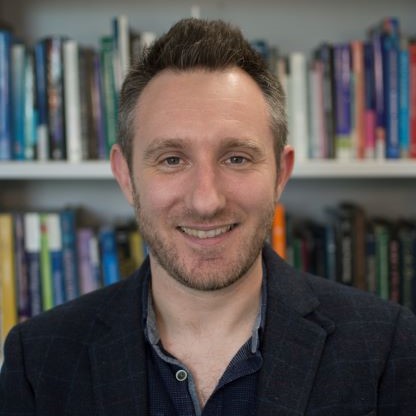Dr. Roger Bretherton is a VIA faculty member and Associate Professor in the School of Psychology at the University of Lincoln, United Kingdom. His decades-long fascination with character strengths informs his research, his teaching, and his work with organizations.
Even today, Roger remains inspired by how these strengths facilitate growth. “I think character strengths have the capacity to bring insight all the time. There’s barely a week that goes by when I don’t notice how my strengths reveal my true self in different situations.”
Fueling Purpose with Strengths Alignment
Although the scientific literature confirms the power of character strengths to energize us, Roger long maintained a personal desire to answer this question for himself. “What is the problem to which character strengths are the answer?”
In his clinical practice, in the classroom, and in his work with civic and religious groups, Roger carried this question over the years trying to answer for himself what it is that character strengths do to create vitality.
Then he noticed something distinctive about people who seemed to be living in accordance with their deeper motivations—their authentic selves. These people faced the same obstacles as the rest of us, but they were more energized and less depleted amidst adversity and in difficult work conditions.
“Most jobs entail periods of difficulty, which can lead to a sense of weariness and not being oneself anymore. But when I encountered people who had a sense of purpose, I noticed the daily grind didn’t wear them down. What I’ve come to observe is that activating our strengths is the way that we find our life, our purpose—and our energy.”
Roger’s own research into the benefits of humility in leaders revealed that when people work for a manager who is high in humility, they are more likely to thrive. However, this dynamic is moderated by strengths use. “If you feel that you can use your strengths—even if your manager isn’t high in humility—you are likely to flourish in that role and gain your sense of worth from it.”
“Alongside your to-do list, you also need a to-be list. Living fully as a whole person is how we put ourselves intrinsically back into what we do,” explains Roger. “Character strengths provide a vehicle for reminding us of who we want to be and how we want to show up in the world. Our strengths reveal how we create a personal ‘to-be’ list. And we know that we’re doing it correctly when we feel the positive energy that flows from expressing our strengths”
Becoming More Like our True Selves
Working with individuals in groups—in the classroom and beyond—Roger often finds that unhappiness stems from forgetting who we are and what matters most to us. “Using character strengths, we’re not trying to change who we are or add something new to our identity. Instead, we’re remembering who we are.”
Roger explains this as a process of self-discovery. He finds that a lot of people have forgotten their own virtuous selves and learning about their character strengths in the context of their virtues creates a sense of awakening to their true self.
In this sense, Roger prefers to facilitate growth instead of encouraging people to think about changing their behaviors. Character strengths provide a framework for helping people move toward their best selves. Instead of asking what’s going wrong and focusing on behavior change, Roger invites people to expand and deepen the aspects of their lives that are going well. “I ask them to tell me what’s going well and then we develop ways to extend those positive behaviors.”
Rediscovering Mindfulness Through Strengths
Roger began practicing present-moment awareness when he was a teenager. But for many years, his mindfulness practice lacked a spark and felt somewhat dull. When he learned mindfulness-based strengths practice (MBSP), which fuses character strengths and mindfulness, he found the spark that had been missing.
“My mindfulness practice came alive by infusing it with character strengths. It gave my practice warmth and grace, which connects with my own spirituality.”
Now that he teaches MBSP, Roger observes how the practice transforms others through aligning what’s best within themselves with a deeper awareness of the present moment. About two-thirds of the way into the program, Roger introduces loving kindness meditation, which has a powerful impact on participants.
“Sometimes when people discover self-compassion, they will grieve over the years when they were not kind to themselves.”
After weeks of working together, MBSP cohorts establish a positive view of one another. There’s a feeling of mutual goodwill that emerges within the group and people also direct that goodwill toward themselves, which facilitates self-compassion. “This is the point where people are ready—emotionally—to transfer that positive view to themselves, and the results can be powerful.”
On a personal level, Roger finds that practicing MBSP increased his confidence. “After practicing MBSP, I feel more like I can face the challenges that come my way.”
